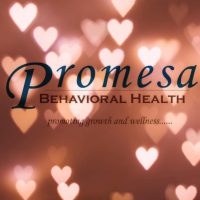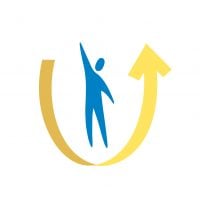Kaiser Permanente - Chemical Dependency
Drug Rehab Center in Fresno, California
Kaiser Permanente's Chemical Dependency in Fresno, CA offers a range of treatment services for individuals suffering from mental health issues, dual diagnosis disorders, substance abuse and alcoholism, including detoxification, dual-diagnosis intensive outpatient and partial-hospitalization programs.
About Kaiser Permanente - Chemical Dependency in California
Kaiser Permanente - Chemical Dependency in Fresno, California is a treatment facility that offers support and care to individuals seeking recovery from various addiction and substance abuse issues. Their facility focuses on treating mental health, dual diagnosis, substance abuse, alcoholism, opioid addiction, and drug addiction. Kaiser Permanente - Chemical Dependency accepts private health insurance and offers a range of levels of care, including detox, dual-diagnosis treatment, outpatient programs, partial-hospitalization, and intensive outpatient treatment. Located in Fresno, this facility provides a safe and supportive environment for individuals looking to overcome their addiction and start their journey towards a healthier life.
As a trusted treatment facility, Kaiser Permanente - Chemical Dependency in Fresno, CA offers a variety of services to assist individuals in their recovery process. Along with the primary focus on addiction and substance abuse treatment, they also provide support for mental health concerns that may contribute to addiction. Their treatment methods include detoxification to assist with the initial stage of withdrawal, dual-diagnosis treatment to address co-occurring mental health and addiction disorders, as well as outpatient programs that allow individuals to receive ongoing care while maintaining their daily routines. Additionally, Kaiser Permanente - Chemical Dependency offers partial-hospitalization and intensive outpatient treatment, providing structured and comprehensive support to individuals at different stages of their recovery journey.
Genders
Ages
Modality
Additional
Conditions and Issues Treated
Substance abuse is a severe problem that affects many people in Fresno, CA. It is characterized by the excessive and inappropriate use of drugs, including alcohol, medications, and illicit drugs. Substance abuse can lead to physical or psychological dependence and affect social life and relationships. Treatment options include medications, counseling sessions, behavioral therapy, and group therapy. If you are suffering from substance abuse, contact for the latest treatments available.
Opioid addiction is when someone becomes addicted to opioids. This can happen quickly due to any opioid use. Opioid withdrawal can be uncomfortable and lead the user to continue using even if they want to quit. It’s best to receive inpatient treatment for detoxification.
Even if a person doesn’t need inpatient treatment, it’s recommended to start rehabilitation or at least some kind of outpatient treatment. This is because the withdrawal symptoms from opioids can be uncomfortable and unpleasant, to the point that a person could end up using again or worse.
Detoxification should be done to break the physical addiction of opioids. This can be done with opioid replacement therapy, medication-assisted therapy, or a more traditional detoxification program. Intensive outpatient treatment is a form of addiction care that allows patients to continue living at home while undergoing treatment. This type of care is appropriate for patients who have been treated in residential treatment programs. Intensive outpatient programs include regular visits to the facility providing therapy, and patients gradually return to their routine life. IOP benefits most when patients have a supportive family member or friend to help them recover.
The first step to getting into an intensive outpatient program is to attend a detoxification facility. Detoxification facilities are designed to remove substances from the body safely. The patient will attend sessions designed to help them understand their addiction and its impact on their lives. While in an intensive outpatient program, therapy sessions are scheduled three to five times per week, with the patient attending no more than two sessions in one day.
Dual Diagnosis therapy is considered more successful than traditional rehab methods because it treats the addiction and the underlying mental health disorder simultaneously. This comprehensive approach gives Fresno, CA patients the best chance for long-term recovery. If the patient does not receive treatment for both conditions, they are more likely to relapse.
Levels of Care Offered
This center offers a variety of custom treatment tailored to individual recovery. Currently available are Detox, Dual-Diagnosis, Intensive Outpatient, Outpatient, Partial-Hospitalization, with additional therapies available as listed below.
Detox is the process by which toxins are removed from the body. In substance abuse, detox refers to the process of getting rid of the drugs that are already there in the system once the patient stops its further intake. Detox is the initial step in the recovery process. The physiological dependence on the drug over a period can lead to withdrawal symptoms.
Depending on the severity of the symptoms, the detox process is managed either medically or clinically. While Medically assisted detox relies on the usage of specific medicines, clinal or social detox relies on providing emotional and psychological support to the patient.
An intensive outpatient treatment program, or IOP, is set up for those struggling with an addiction to begin the recovery process. However, the patient will not live at the facility during treatment.
IOP involves patients coming in and out of a medical office building regularly to receive therapy and other services while continuing their life outside of these visits.
IOP is a step up from drug detoxification or alcohol detox. However, it’s still considered a phase of recovery rather than the ultimate goal. There are many rehabs and treatment facilities available to patients in need of IOP.
Outpatient treatment consists of counseling and therapy sessions. The outpatient treatment process begins with the addict’s initial detox period, lasting about ten days. Outpatient treatment is used for those who are at moderate risk for “slipping back” into the addiction. It is also used for those who are not currently experiencing any side effects from withdrawal, can handle social pressure, have a stable living environment, and have a good support system.
PHP or Partial Hospitalization Program treatment is a treatment that takes place in a treatment facility for an individual affected by addiction. This treatment is generally more than outpatient treatment and less than inpatient treatment. It can be adjusted for an individual’s treatment needs.
Therapies & Programs
Individual Therapy is a crucial component of addiction recovery. Therapists work with patients to identify the root of their addiction and figure out how to better handle the issues that led to them using drugs. Individual Therapy is one on one sessions where people meet with their therapist. Individual therapy provides a safe space for people to open up and discuss personal and sensitive topics which they may not feel comfortable discussing in a group setting.
In this type of therapy, therapists can develop specific solutions for each patient, which helps speed up their recovery process. In addiction recovery, therapy is a crucial part. It allows patients to go deep into their core issues and discover how those problems can be better handled now. Therapy can be performed in individual sessions as well as group settings. In individual therapy for addiction, the patient meets with the therapist one-on-one to focus on the underlying issues of addiction and come up with solutions to prevent future abuse.
Family therapy is a crucial part of drug treatment and getting sober. It is one of the most effective ways to help addicts stay on the path to long-term sobriety. One of the most important parts of family therapy is the relapse prevention plan. During treatment, therapists and doctors will often sit down with the addict and their family to develop a plan if the addict ever feels like they want to use again. This plan should involve steps the addict and family can take together to prevent them from relapsing in the future.
An addict’s family can play a vital part in helping them to avoid relapse because they can spot the warning signs and help them get back on track before it becomes too much of a problem. Family therapy is one of the most effective ways to help addicts stay on the path to long-term sobriety.
Group Therapy is employed by drug treatment centers like Kaiser Permanente - Chemical Dependency to provide the recovering addict with a platform to talk about their feelings and experiences. It also provides for an opportunity to learn from other addicts who have successfully overcome their addiction. It is recommended that all group members be recovering addicts for this type of therapy to work.
Payment Options Accepted
For specific insurance or payment methods please contact us.
Is your insurance accepted?
Ask an expert, call (888) 674-0062
Additional Details
Specifics, location, and helpful extra information.
Fresno, California 93726 Phone Number(559) 448-4620 Meta DetailsUpdated November 25, 2023
Staff Verified
Kaiser Permanente - Chemical Dependency Patient Reviews
There are no reviews yet. Be the first one to write one.
Fresno, California Addiction Information
More than 3 million of California's citizens are addicted to illegal drugs. Almost 800,000 people use hard drugs, almost 5 million use marijuana, and another 2.1 million abuse alcohol every year. Other substance abuse issues such as binge drinking and teen drug use are also common. Many illegal drugs such as cocaine, heroin, methamphetamine, and marijuana are smuggled into the state from Mexico.
In Fresno, CA, 9.4% of residents abuse drugs, and 18.5% of the population has a substance abuse problem. NIDA reports that over 40,000 people die from drug-related deaths each year. The most commonly abused drugs are cocaine, meth, heroin, opioids (narcotics), marijuana, alcohol, and inhalant. There are many drug-free and sober living environments in Fresno, California, including outpatient treatments, group counseling sessions, and individualized counseling sessions.
Treatment in Nearby Cities
- Apple Valley, CA (215.7 mi.)
- Van Nuys, CA (195.6 mi.)
- Palo Alto, CA (137.9 mi.)
- Venice, CA (208.4 mi.)
- Westlake Village, CA (191.7 mi.)
Centers near Kaiser Permanente - Chemical Dependency
The facility name, logo and brand are the property and registered trademarks of Kaiser Permanente - Chemical Dependency, and are being used for identification and informational purposes only. Use of these names, logos and brands shall not imply endorsement. RehabNow.org is not affiliated with or sponsored by Kaiser Permanente - Chemical Dependency.


